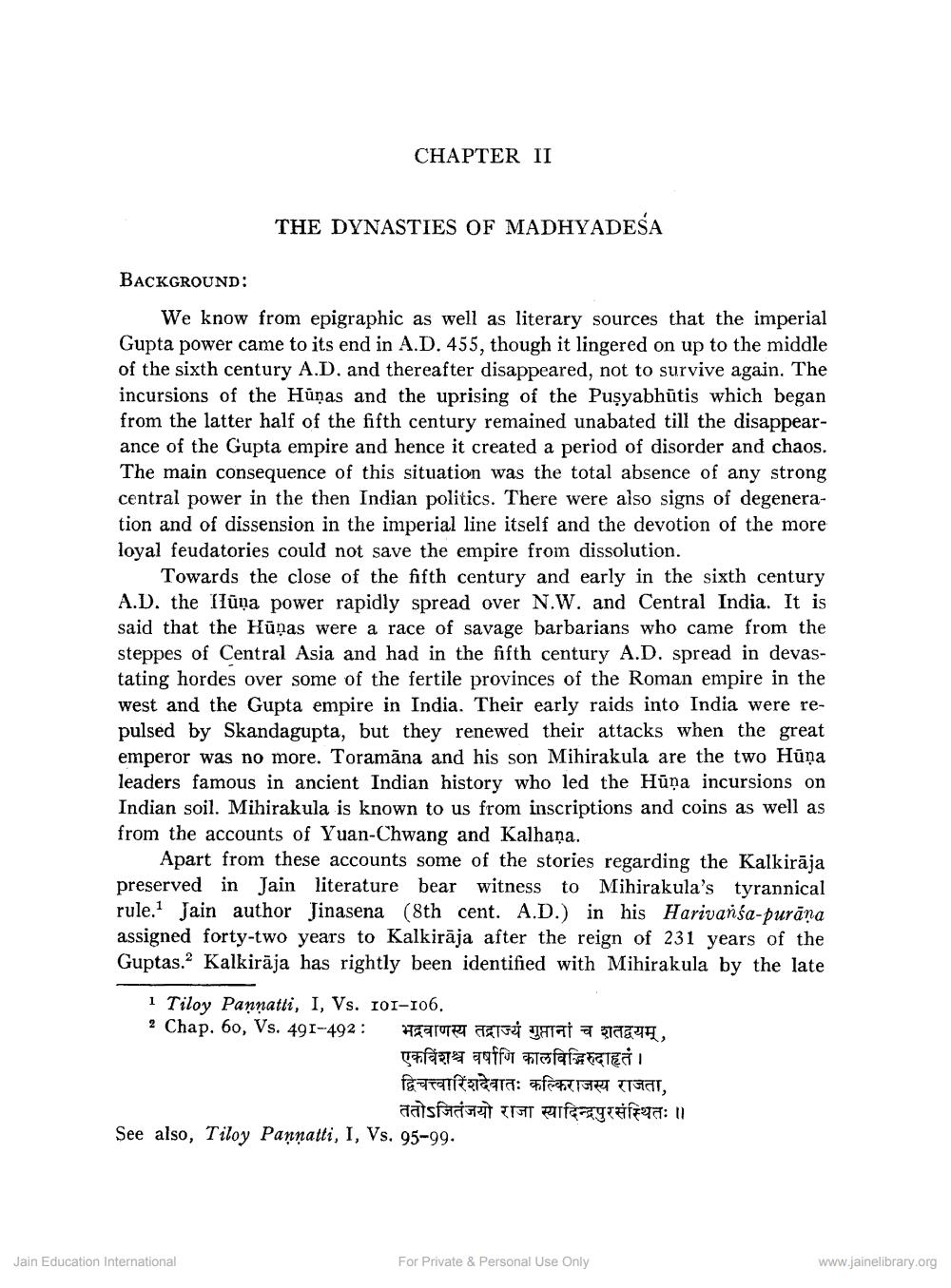________________
CHAPTER II
THE DYNASTIES OF MADHYADESA
BACKGROUND:
We know from epigraphic as well as literary sources that the imperial Gupta power came to its end in A.D. 455, though it lingered on up to the middle of the sixth century A.D. and thereafter disappeared, not to survive again. The incursions of the Hūnas and the uprising of the Puşyabhūtis which began from the latter half of the fifth century remained unabated till the disappearance of the Gupta empire and hence it created a period of disorder and chaos. The main consequence of this situation was the total absence of any strong central power in the then Indian politics. There were also signs of degeneration and of dissension in the imperial line itself and the devotion of the more loyal feudatories could not save the empire from dissolution.
Towards the close of the fifth century and early in the sixth century A.D. the TIūna power rapidly spread over N.W. and Central India. It is said that the Hūņas were a race of savage barbarians who came from the steppes of Central Asia and had in the fifth century A.D. spread in devastating hordes over some of the fertile provinces of the Roman empire in the west and the Gupta empire in India. Their early raids into India were repulsed by Skandagupta, but they renewed their attacks when the great emperor was no more. Toramāna and his son Mihirakula are the two Hūna leaders famous in ancient Indian history who led the Hūna incursions on Indian soil. Mihirakula is known to us from inscriptions and coins as well as from the accounts of Yuan-Chwang and Kalhaņa.
Apart from these accounts some of the stories regarding the Kalkirāja preserved in Jain literature bear witness to Mihirakula's tyrannical rule. Jain author Jinasena (8th cent. A.D.) in his Harivansa-purāņa assigned forty-two years to Kalkirāja after the reign of 231 years of the Guptas. Kalkiräja has rightly been identified with Mihirakula by the late
1 Tiloy Pannatti, I, Vs. 101-106. 2 Chap. 60, Vs. 491-492 : HTTTTTTU YATAt a Jaya,
एकविंशश्च वर्षाणि कालविद्भिरुदाहृतं । द्विचत्त्वारिंशदेवातः कल्किराजस्य राजता,
ततोऽजितंजयो राजा स्यादिन्द्रपुरसंस्थितः॥ See also, Tiloy Pannatti, I, Vs. 95-99.
Jain Education International
For Private & Personal Use Only
www.jainelibrary.org




